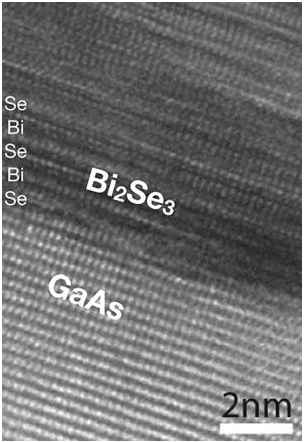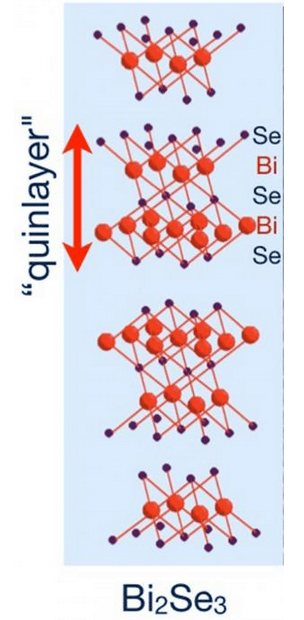Researchers Use Topological Insulator- Bismuth Selenide To Generate Spin-Transfer Torque
The Research team of Penn State University and Cornell University physicists has discovered a novel material for studying the concept of “spin-transfer torqueâ€. The new substance is a combination of standard magnetic material and bismuth selenide, also known as "topological insulator". Bismuth selenide inherently aid the flow of electrons with a particular oriented spin. The results show that this amalgamation can be more efficient for managing and controlling magnetic memory and logic than any other material combination so far.

Magnetic devices are used to implement non-volatile memory and logic technologies that can scale to high speed. These devices will require the further development of efficient mechanisms to reorient their magnetization with the minimal usage of power and current. There has been substantial progress in this effort recently. The topological insulator has a surface state in which electron’s spin orientation is fixed relative to its propagated direction as the effects of spin–orbit coupling is maximum. The experiment carried out for this purpose shows that at room temperature, the charge of the current flows in-plane in a thin film of bismuth selenide (Bi2Se3) and exerts a strong spin-transfer torque on the neighboring thin film made of ferromagnetic permalloy (Ni81Fe19).Thus, the spin-oriented electrons of the topological insulators can be used to control the magnetic polarity direction in the adjacent material. The strength of the torque per unit charge current density in bismuth selenide is greater than spin-transfer torque of any other sources measured.

In a statement, co-principal-investigator Nitin Samarth, a professor of physics and the George A. and Margaret M. Downsbrough Department Head of Physics at Penn State has mentioned that this is indeed a remarkable development in the field owing to the fact that it is the first optimistic indication for building a practical technology by using the topological insulator material, which the condensed-matter physicists have been studying by applying spintronics.
According to the researchers, their data suggest that topological insulators would enable electrical manipulation of magnetic materials at room temperature, which will be helpful for magnetic memory and logical devices.
To know more about the research you can have a look at the research paper titled #-Link-Snipped-# which was published yesterday in Journal Nature.
Source: #-Link-Snipped-# | #-Link-Snipped-#
Magnetic devices are used to implement non-volatile memory and logic technologies that can scale to high speed. These devices will require the further development of efficient mechanisms to reorient their magnetization with the minimal usage of power and current. There has been substantial progress in this effort recently. The topological insulator has a surface state in which electron’s spin orientation is fixed relative to its propagated direction as the effects of spin–orbit coupling is maximum. The experiment carried out for this purpose shows that at room temperature, the charge of the current flows in-plane in a thin film of bismuth selenide (Bi2Se3) and exerts a strong spin-transfer torque on the neighboring thin film made of ferromagnetic permalloy (Ni81Fe19).Thus, the spin-oriented electrons of the topological insulators can be used to control the magnetic polarity direction in the adjacent material. The strength of the torque per unit charge current density in bismuth selenide is greater than spin-transfer torque of any other sources measured.
In a statement, co-principal-investigator Nitin Samarth, a professor of physics and the George A. and Margaret M. Downsbrough Department Head of Physics at Penn State has mentioned that this is indeed a remarkable development in the field owing to the fact that it is the first optimistic indication for building a practical technology by using the topological insulator material, which the condensed-matter physicists have been studying by applying spintronics.
According to the researchers, their data suggest that topological insulators would enable electrical manipulation of magnetic materials at room temperature, which will be helpful for magnetic memory and logical devices.
To know more about the research you can have a look at the research paper titled #-Link-Snipped-# which was published yesterday in Journal Nature.
Source: #-Link-Snipped-# | #-Link-Snipped-#
0
